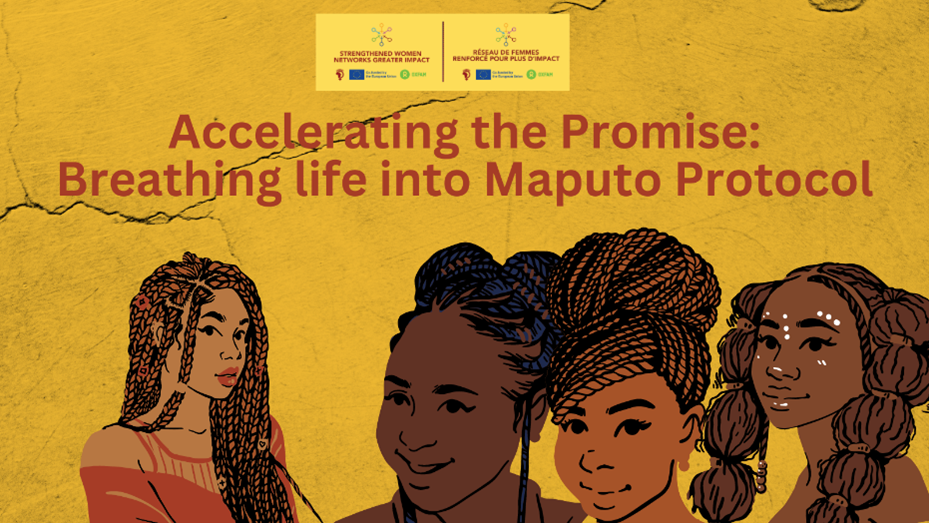
Signed and Ratified – eBulletin
The second half of the year kicked off with a buzz of activities. In this issue we share with you the highlights of the months of May, June and July. We will also delve deeply into the wide range of activities that took place on the sidelines of the Maputo Protocol’s 20th anniversary celebrations as well as events preceding events. We will also share with you the share opportunities and spaces that continue to shape and contribute to dismantling the status quo and co-creating a just, equal, and transformative world for all.
Read on and check out the regional briefs and call for action. As always, we are happy to hear from you. Do send us an email on m.anzaya@femnet.or.ke for any additional information and/ or clarification on the E-Bulletin.
Maputo @20!
The Maputo Protocol on women’s rights otherwise known as The Protocol to the African Charter on Human and People’s Rights of Women in Africa provides comprehensive rights for women and girls in Africa, and this year marks its 20th anniversary.
The Protocol provides extensive protections for women such as the right to vote, right to social and political parity with men, increased autonomy in making decisions about their reproductive health and an end to harmful traditional practices like female genital mutilation among others. It is regarded as one of the most dynamic human treaties globally and encompasses a wide range of civil, political, economic, social, cultural and environmental rights.
The Maputo Protocol on Women’s Rights has been ratified by 44 of the 55 African Union Member States as of June 2023. On June 7, 2023, the Republic of South Sudan became the 44th AU Member State to lodge its instruments of ratification with the AU Commission.
Click on this link to access the complete document: The Maputo Protocol
Signing the Maputo Protocol is a crucial step, but ratification is equally vital for its effective implementation in African countries. Ratifying the protocol demonstrates a commitment by the governments to uphold and protect women’s rights, gender equality, and the elimination of harmful practices such as child marriage and female genital mutilation. It also legally binds the signatory countries to align their domestic laws with the provisions of the protocol, ensuring that it becomes an integral part of their legal framework.
By ratifying the Maputo Protocol, African countries signal their dedication to promoting women’s empowerment, ending discrimination, and fostering an environment where women can thrive and contribute meaningfully to society. This active endorsement of the protocol paves the way for tangible progress, and through collective efforts, it reinforces the vision of an Africa where women’s rights are upheld, respected, and promoted for the betterment of all.






